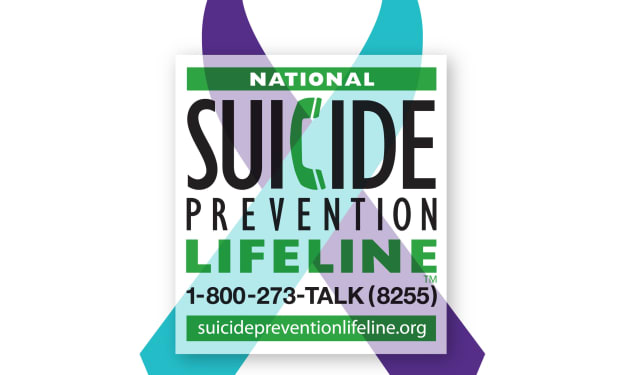Oppositional Defiant Disorder
What It Is, What to Look out For, and What to Do

Oppositional Defiant Disorder, otherwise known as ODD, sounds extremely scary. I was scared when those words came out of the psychologist’s mouth during my 3-year-old son’s evaluation. The one thing I kept thinking about was a character on Degrassi named Hunter Hollingsworth who went to a psychiatric center for ODD. Visions of horrible things kept coming into my head. Will my son shoot up a school? Is my son going to become a criminal? Will I have to send him to a psychiatric center? After I left the psychologist appointment I decided to do my own research which helped me calm down. I’m going to answer some basic questions for you so that if you or someone you love is diagnosed with ODD you can better understand it and hopefully lessen your fears.
What is ODD?
I always go to Google for my most basic definitions and I honestly think their definition sums it up. They say, “A disorder in a child marked by defiant and disobedient behavior to authority figures.” So a child with ODD basically can’t accept orders from authority figures well. It’s a very common diagnosis too. Google states that there are about 200,000 cases per year in the US so if your child gets diagnosed know that they’re definitely not alone and neither are you.
What are the signs of ODD?
The DSM-5 separates ODD criteria into a few different sections. First one is “angry and irritable mood.” If you touch an item that belongs to a person that has ODD they might hit your hand away or yell at you instead of just explaining that it theirs. If you tell them to do something simple like to clean up they might throw a temper tantrum regardless of their age. The second one is “argumentative and defiant behavior.” If you tell them something as simple as to come to the table to dinner they might argue with you, even if they already had plans to come to the table. As soon as someone that a person with ODD considers you authority they will fight you through everything. The third one is “vindictiveness.” One example I can think of is something my son does constantly. He likes to mess with our phones and if we tell him not to touch our phones when it’s on a table he will look at us in the eye and try to push it off the table. It’s not necessarily an evil thing like we tend to think about when we think of the word “vindictive” but that is what it is considered. These signs can be mild (happening only in one setting), moderate (happening in two settings), or severe (happening in three or more settings). These signs can start off in one place and then escalate to other places. My son used to only do these things at home but now has progressed to at home and at school.
What causes ODD?
Like most mental disorders there’s no clear cause to ODD. They believe it might be caused by genetics, environment, or both. If the family has a history of mental disorders then the child is more likely to develop a mental disorder like ODD. In our case I am diagnosed with anxiety disorder, depression, and bipolar disorder so that’s probably what caused my son’s ODD. Environmental factors that they believe might cause ODD is harsh or inconsistent discipline, abuse, and neglect.
What can you do to treat ODD?
Unfortunately, ODD can’t be prevented or cured, but there are ways to help improve behavior. The main thing is early intervention which can help stop the progression of ODD. Some things can include parent training (which can teach parents different ways to discipline a child with ODD without causing them to lash out), parent-child interaction therapy (where a therapist will work one-on-one with the parent and child to give the parent different ways to interact with their child), individual/family therapy (where the child can explain their feelings to a therapist by themselves and the family can work together to better understand their child), and social skills training (which can help teach the child how to interact better with peers). If therapy but itself doesn’t work there are medications to help with certain symptoms of ODD, like aggressiveness, but there’s no medication specifically for ODD. Therapy is all a trial and error and what works one day may not work the next. Some kids will respond great with therapy alone while others may need medication with therapy.
As long as you continue to work with a person with ODD they can live a very healthy life and be productive members of society. Don’t consider this a “death sentence” of sorts. Just never give up on them and while they may have their bad days they will also have their good days. With the right help they will start to have more good days than bad days. I still love my child regardless if he has ODD. It’s not always going to be easy but I will continue to work with him and I make sure that he gets all the help he needs. I hope this helps you better understand ODD and if your child or another loved one is diagnosed with ODD I hope this lessens your fears and makes you feel less alone. You aren’t alone in this journey and you’ll never be alone in this journey.
About the Creator
CinKay Espinoza
I was who I was and I am who I am, but who I was is not who I am.






Comments
There are no comments for this story
Be the first to respond and start the conversation.